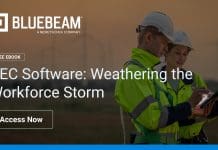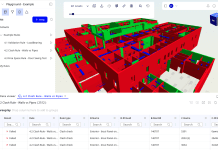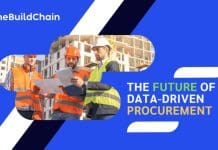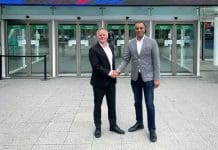Ryan Dempsey, founder and chief executive of The Compliance Workbook, discusses the importance of evolving the way information is presented and used
Before we jump right in to explain why the title of this article is not 100% reflective of the actual content, we do need to understand the context in which it’s written and for what purpose. Of course, data isn’t dead, that’s impossible, but how we use data and where it is presented is constantly changing, yet people’s management choices seem to be stagnated. That’s not referencing everyone in the world, just a large majority of those who rely on information to make key decisions.
Several key things are growing in popularity recently. Some due to the fact we need to find more effective and efficient ways of doing things because the value of money over the value of tradespeople or services is inconsistent. The service we receive these days depends on the level of micromanagement from inception to completion of jobs. Other key areas, like compliance, are growing in popularity because of catastrophic events, which are then used to publicly “skills rebalance” the UK’s construction fraternity.
The truth is we need to constantly evolve, one foot in front of the other, one step at a time.
New technology makes life easier
We are learning that new technology, processes and, most importantly, a wider understanding of things should make life easier. All of these things do. The trick is to find the natural implementation of change. No one likes change, it makes people nervous and forces the human race to dig their heels in and protest. However, if you find a way to humanise change with a clear understanding that the change makes a difference, you’ve climbed nearly every hurdle there is.
Ok, so let me explain a couple of things I’ve mentioned. The first is the fact that data is dead. We’ve cleared up the fact it’s not the data that’s dead, it is the silo working or the tunnel vision around what’s needed over what’s available. There’s so much data available which will make everyone’s life so much easier to plan, check and act when it is turned into information and knowledge.
The second point we need to clear up is the aforementioned ‘humanise change’ comment. The best way to explain this while including the data element above is to give you a scenario, I hope this works. Here goes…
You’re stood at one side of a busy road and you need to cross, you have several skills and tools (sight and hearing) at your disposal to reduce the risk. At the other side is the next inspection or service date, right now that is all you need, the proof the work is done and you can ignore the asset until that date.
However, to walk to the other side without all the information at your disposal (sight/sound) has several risks. It’s a busy road with vehicles coming left and right all the time, walking over without looking is crazy, right?
But we are looking for efficiencies and only need the next inspection date! Logically, in life, we utilise skills at our disposal to reduce risks significantly, so why don’t we do that in our organisations; gather more information from the data at our disposal to position us better and thus prevent a catastrophe?
We get lazy or we look for efficiencies, we realise that if we remove the ‘sight tool’, we can still hear the cars coming and so we don’t reduce the risk, we just make a saving while gaining the same result: the next inspection date.
However, technology advances and one day you’re hit by an electric car!
When I first came up with the idea for our technology, I understood that along with the data people do want sight of, and already stress about, we can provide data people probably don’t want to see. It’s not that they don’t want the data, it’s the worry that the data will show more and thus create more work. We’ve innovated in such a way that our solution seamlessly fits and naturally provides more and more based on how you want to interact with it. Simply meaning you get what you need but you can also grow with what you have access to.
Ryan Dempsey
Founder and CEO
ryan@thecomplianceworkbook.com
Please note: this is a commercial profile.




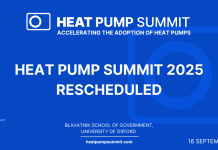

![[Video] Fireco: 80 new fire doors required for residential flats in London](https://www.pbctoday.co.uk/news/wp-content/uploads/2025/04/2024-06-01-Lords-view-one_1200x750_004-218x150.webp)
